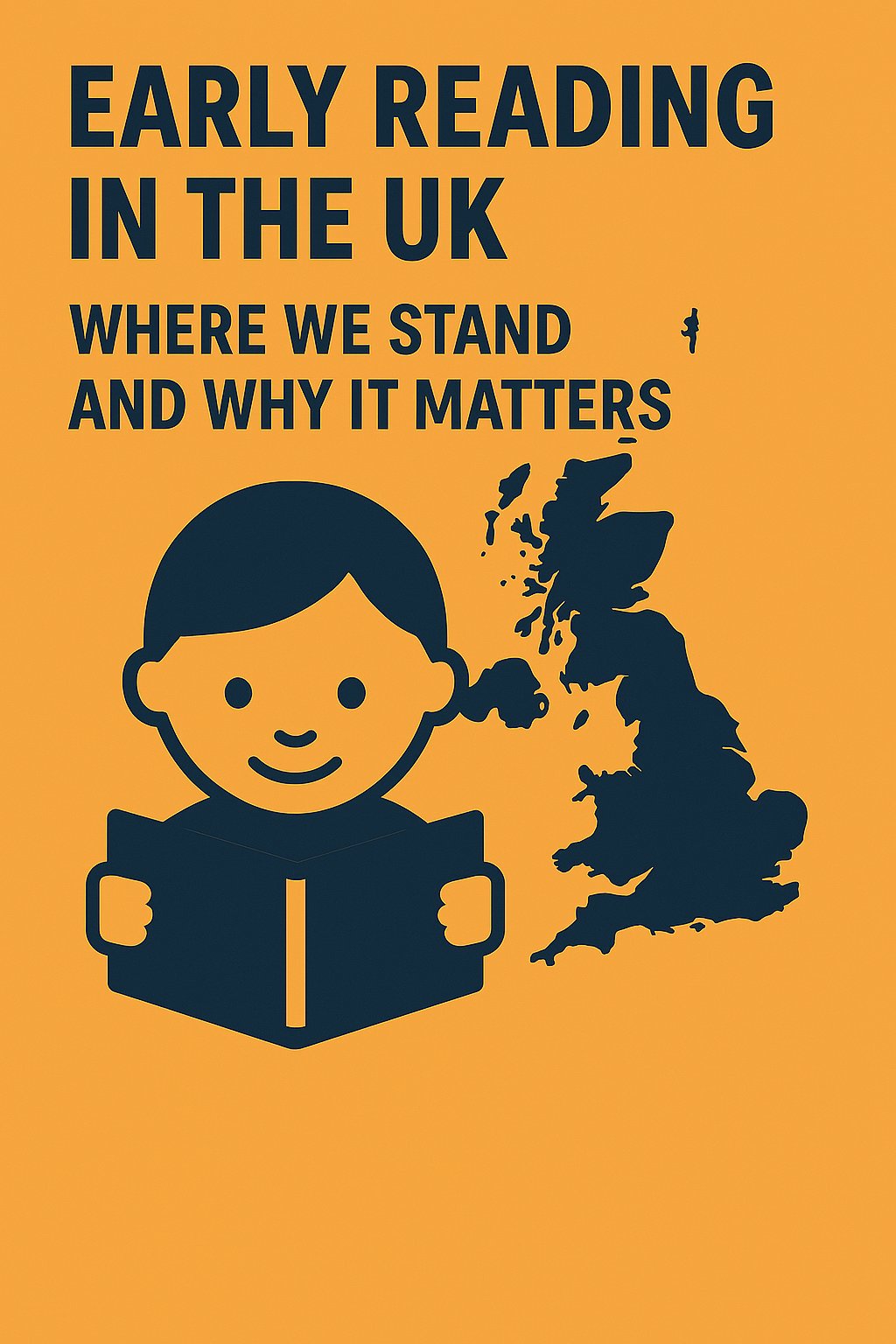
Early Reading in the UK – Where We Stand and Why It Matters
Introduction
Early reading skills are the cornerstone of lifelong learning. For parents, grandparents, home schoolers, and independent teachers, understanding how the UK fares in early literacy and why early learning programs up to age 8 are critical and can help shape children’s futures.
The State of Early Reading in the UK
-
Current Statistics:
Recent government figures show that a third of children leave primary school in England without fundamental reading, writing, and math's skills. This figure rises to over half among disadvantaged pupils (Ref. GOV.UK). -
Trends:
There’s been a notable decline in children reading for pleasure; the number of 8 to 18 year old's who enjoy reading in their spare time has dropped by a third since 2019 (Ref. GOV.UK).
UK Early Reading Snapshot (2025)

Why Early Reading Matters
-
Brain Development:
90% of a child’s brain develops by age five, making early language exposure crucial. -
Academic Impact:
Children who read for pleasure perform better not only in reading, but also in writing, comprehension, grammar, and vocabulary (Ref. GOV.UK). -
Social and Emotional Benefits:
Early reading fosters communication, emotional intelligence, and confidence (Ref. Pepperppot. co.uk).

International Comparison
-
Europe:
Most European countries include early literacy as a core part of their early childhood education and care (ECEC) frameworks, often integrating digital literacy skills as well (Ref. Anefore). -
Global Benchmarks:
The UK’s focus on phonics has been praised internationally, but reading enjoyment and attainment still lag behind top-performing countries like Finland and Singapore.
Table: Early Reading Attainment – UK vs. Selected Countries

The Power of Early Learning Programs
-
Long-Term Benefits:
Children in quality early years programs are more likely to succeed academically, develop better vocabularies, and show improved social skills (Ref. Pepperppot.co.uk). -
Transition to School:
Early exposure to structured reading activities helps children adapt smoothly to formal education (Ref. Pepperppot.co.uk). -
Case Study: Emily’s Reception Year
Emily, a UK pupil, entered reception with above-average literacy scores. Detailed assessment revealed strengths in letter recognition and word reading, but also areas for targeted support. Her progress illustrates how early, individualized attention can shape reading success (Ref. Cambridge.ORG).
What Works in the UK?
-
Phonics Success:
The government’s investment in phonics and teacher training has led to millions of children reading fluently by the end of primary school (Ref. GOV.UK). -
English Hubs:
School-to-school improvement programs are driving up standards and supporting teachers in delivering high-quality reading instruction (Ref. GOV.UK).
Challenges and Opportunities
-
Disadvantage Gap:
Socioeconomic factors remain a major barrier, with disadvantaged children less likely to reach reading benchmarks (Ref. GOV.UK). -
Declining Reading for Pleasure:
The drop in reading enjoyment is concerning, as it impacts broader academic success (Ref. GOV.UK). -
Parental Involvement:
Home reading routines and positive attitudes toward books are crucial, especially for home schoolers and families.
UK Case Study: Parent Testimonial
“Reading together every evening has made a huge difference for my son. He started school shy and unsure, but now he’s confident and loves books. The school’s phonics program gave us the tools to help him at home.”
— Sarah, parent in Manchester
Call to Action
-
For Families:
Make reading a daily habit. Visit libraries, explore new genres, and let children choose books that excite them. -
For Home Schoolers & Tutors:
Use phonics-based resources and monitor progress with regular, informal assessments. -
For All:
Advocate for continued investment in early years literacy and support local reading initiatives.
References
-
GOV.UK, Reading and writing boost to drive high and rising standards
-
Key Data on Early Childhood Education and Care in Europe 2025
-
NSW Government, Benefits of early childhood education
-
Pepper-Pot Nursery, The Benefits of Early Childhood Education
-
Cambridge University Press, Case Study - Early Years Literacy


